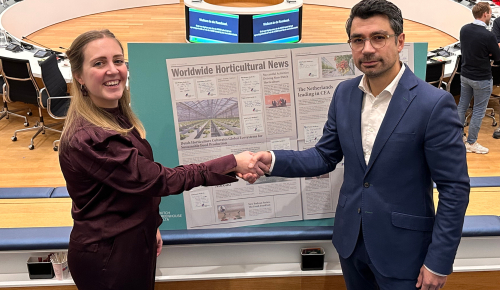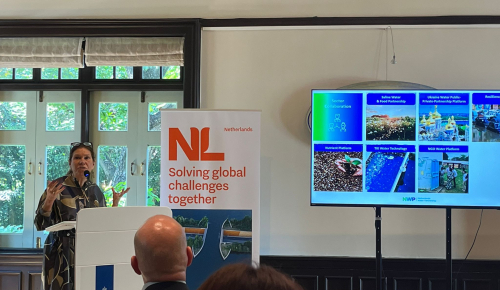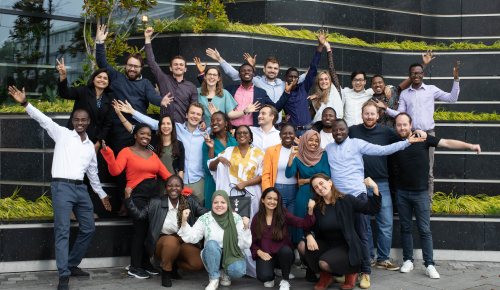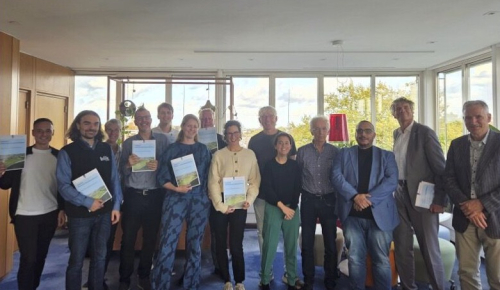News
26 May 2021On the way to integrated coastal management in Quintana Roo
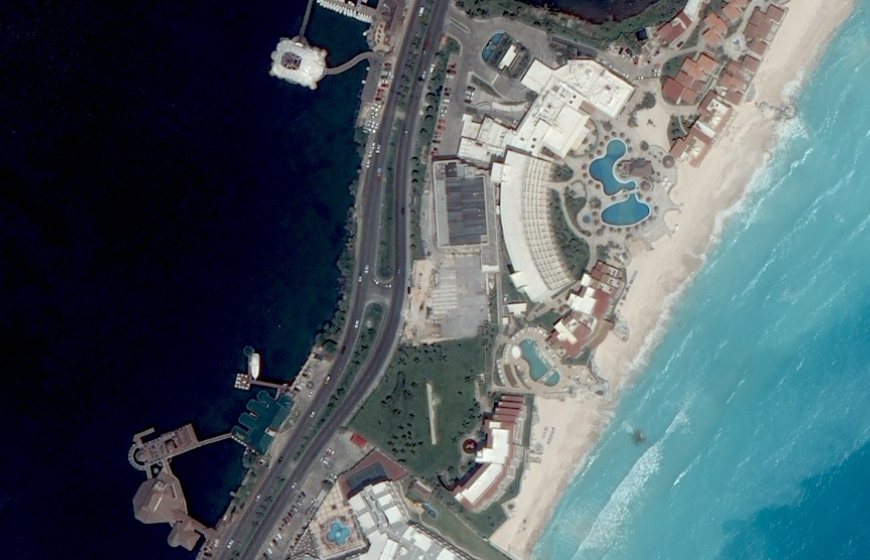
The Mexican province of Quintana Roo and the Netherlands will work together on the integrated management of the province’s 900 kilometre long coastline. The collaboration will target the restoration of the ecosystems to make the coast safer and that restoration will go hand in hand with urban development and sustainable tourism. The recently signed Letter of Intent is a milestone in the years of collaboration and was made in part possible by the Partners for Water programme.
A conversation with Rodolfo Silva Casarín, Professor at the National Autonomous University of Mexico (UNAM) and Ana Nuñez Sanchez, Senior Advisor and researcher at Deltares.
Mexico is the second most important export market for the Netherlands in Latin America and the Netherlands is the sixth most important investor in Mexico. Quintana Roo, on the Yucatán peninsula on the Caribbean Sea in the east of Mexico, has a surface area a little larger than the Netherlands and has just less than two million inhabitants. The beach resort of Cancún, with half a million inhabitants, is its biggest city.
A consistent and joined up government approach
According to Rodolfo Silva, a second challenge is the lack of a consistent and joined up government approach. “A new government with new people and new ideas takes office every couple of years. So there is no long-term vision while this is exactly what we need for the challenges of climate change in a region with a very vulnerable ecosystem.”
Ana Nuñez Sanchez emphases the need to create a strong legal and institutional framework. “If you incorporate your intentions in legislation and regulations, you will create a clear mandate and authority, and more lasting direction. We believe that this type of joined up government approach framework will really help Quintana Roo.” Rodolfo Silva does have a proviso though. “Legislation and regulations are usually static while ecosystems are very dynamic. The laws should be accompanied by periodic strategic plans so that you can adjust to changing circumstances, emerging science and new technologies.”
Integrated approach
Ana Nuñez Sanchez believes that the ideal situation would be an integrated national strategic plan providing direction and coordination mechanisms as well as a more concrete coastal management plan that guides and connects synergistically with other plans in the areas of economic and urban development, coastal protection, the environment, agriculture, tourism and, of course, climate change. “This may be ambitious, but it is necessary to avoid fragmentation.” Economic development was the guiding force in the development of the coastal resort of Cancún. Rodolfo Silva explains that “At present, 500,000 people live in the very vulnerable and unstable region and there is hardly space to change this. We need to avoid repeating this mistake in the future. We need to have balance.” Ana Nuñez Sanchez adds that “Too much emphasis on developing tourism can come at the cost of the natural resources and the ecosystems services that they provide, while it is just that very same natural resources and services that attracts and protects tourists.”
“You need to look at the consequences rather than the impact,” continues Rodolfo Silva, “And look at the causes rather than the symptoms. These are what will determine your response. You will thus build bridges between the past, the present and the future.”
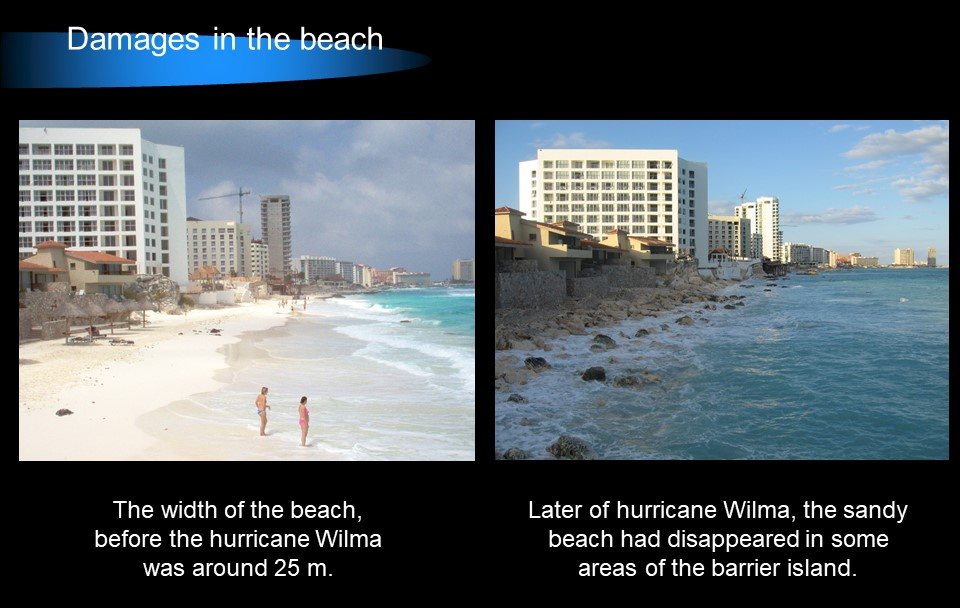
Grey and green in balance
In the aftermath of floods and drought, the tendency is to react quickly, taking major and far reaching action and this could lead to unsustainable investments in the grey infrastructure. According to Ana Nuñez Sanchez, “These actions are not always based on robust economic, social or environmental analysis and could lead to society getting locked into one approach that is not sustainable. Deltares can help in developing and applying nature-based solutions that are in balance with the grey infrastructure and provide more cost-effective, environmental and socially sound results.” Rodolfo Silva continues. “Aruba, Bonaire and Curaçao are also part of the Netherlands and the issues there are comparable to ours. Smart and sustainable solutions were found for the islands in the area of coastal management so it is worth seeing if anything can be replicated in Quintana Roo.”
Knowledge and local cooperation
Rodolfo Silva says that a lot more knowledge is needed at various levels. He hopes that the Letter of Intent will help stimulate this. “I am not only talking about researchers and universities, but primarily about the knowledge in the local communities. They are important stakeholders and must be recognised as such.” Ana Nuñez Sanchez confirms this. “You really need the local communities if you are to understand the local ecosystem properly. They live in that ecosystem. They know how it works and how they can use it. It is also important to have a system in place for government agencies, the scientific community and citizens to share information freely. This transparent approach to data and information can spur scientific development and advance communication and education.”
What the Netherlands can learn from Quintana Roo
One thing that Rodolfo Silva points to is that “The people here are better able to deal with disasters. In the Netherlands so many things are organised that the people themselves do not take action immediately and they are not used to things going wrong anymore. The Netherlands is a wonderful country, but all the work that has been done to the country over the years means that it is far from a natural ecosystem.”

A milestone in collaboration
The Letter of Intent was signed by Wilfred Mohr, the Dutch Ambassador in Mexico, and Efrain Villanueva Arcos, Minister of Ecology and the Environment of Quintana Roo on 11 February in Cancún. The countries have collaborated since 2014 on issues such as resilient coastal management interwoven with urban development and tourism. The Letter of Intent emerged from an online seminar on 25 November 2020 about integrated coastal management. The seminar was organised by the Netherlands Water Partnership, the Dutch Embassy in Mexico and the National Commission on Water of Mexico (CONAGUA) as part of the Partners for Water Programme.
The webinar on Integrated Coastal Management, held on 25 November 2020, was co-organised with NWP under the framework of the Partners for Water Programme. This session gathered about 250 attendees and created a platform for an interesting exchange between Mexico and the Netherlands on successful experiences and tools to strengthen and promote initiatives for proper integrated management in coastal areas. Participants discussed the importance of knowing the causes of coastal problems, promoting the participation of all stakeholders in consensus building, and providing specific training to strengthen an integrated management approach.
International Cooperation Management of Conagua
The Embassy’s mission is to strengthen commercial and bilateral ties with Mexico. Our cooperation prospers the most at the local level. Collaboration with Quintana Roo is a great example of how our cooperation has grown stronger. Thanks to the Partners for Water Programme, we are building an integrated, inclusive and sustainable approach towards resilience, water and coastal management. The Netherlands certainly has an added value in these sectors, and even more so when we go hand in hand with Mexican experts and local actors.
Wilfred Mohr
Ambassador of the Kingdom of The Netherlands in Mexico and Belize
Featured NWP members: Deltares
